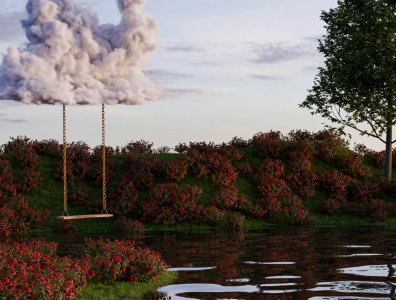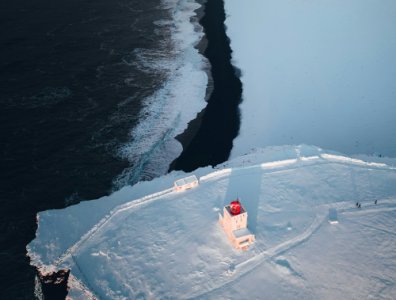IMHO: 880 million-year-old manufacturer seeks partnerships
Nature is your supply chain’s supply chain – and it’s time to invest in your most valuable asset.
“Whatungarongaro te tangata, toitū te whenua – as people pass, the land remains.”
In boardrooms across Aotearoa New Zealand, we often speak of investment returns and shareholder value, yet our most important assets – the land, the oceans and the ecosystems that sustain us – are too often overlooked in financial decision-making.
Nature is the foundation of our economy, our supply chain’s supply chain, our greatest innovator and our most powerful cheerleader on the world stage.
Nature is always there, delivering for us. But it’s been chronically underfunded and sooner or later it’s going to quit on us. The question for directors is not whether to engage with nature as a material business issue, but how soon and how boldly?
Nature has been innovating for hundreds of millions of years – 880 million years to be more precise. And through these innovations, from cell structure to whole ecosystems, nature laid the foundations for the air we breathe, the food we grow and the climate systems we rely on today.
Yet for all that it gives us, nature has never been more at risk – or more undervalued in business decision-making.
The Department of Conservation’s new Always Be Naturing campaign highlights that we need to protect our greatest asset and encourages all New Zealanders to take action, because the more we connect with nature, the more we care for it. The same can be said for our businesses. The campaign helps leaders and investors connect the dots between nature and our economic prosperity.
The value of nature
Nature is the balance sheet that underpins New Zealand’s prosperity. Ten years ago, Landcare Research estimated the economic value of our ecosystem services at $57 billion, equivalent to 27% of GDP. Since then, the importance of nature has only grown.
-
- 70% of our export earnings rely directly on nature, from dairy and meat to wine and kiwifruit.
- 80% of our export markets now demand nature-friendly products, reshaping consumer expectations.
- Tourism, our second-largest export earner, contributed $38 billion in 2023, much of it driven by our natural landscapes.
- 82% of our electricity already comes from renewables, with potential for further investment in hydro, wind, solar and geothermal.
Globally, the World Economic Forum estimates that over half of the world’s GDP (NZD$74 trillion) depends on nature. Nature is not a ‘nice to have,’ we can’t afford for it to fail.
Opportunities for business
For forward thinking businesses, DOC’s Always Be Naturing campaign presents an opportunity to actively invest in nature as core infrastructure for our economy.
DOC’s Director of Strategic Partnerships and Investment David Van Der Zouwe said “We need more companies to understand that the pressure nature is under will ultimately impact their bottom line and that they need to step up and protect it. Always Be Naturing is giving us new ways to help businesses do that, whether that’s examining their own impacts on nature, partnering with DOC or supporting the many other organisations doing great mahi for nature.”
Strategic opportunities
For boards, the task is not only to defend against nature-related risk but to unlock the opportunities that a nature-positive economy presents. Deloitte estimates that the transition to nature-positive practices in just three sectors could generate NZD$17 trillion globally in annual business opportunities by 2030.
Opportunities include:
Access to new markets, products or partnerships: Innovations can open doors to premium export markets, audiences, certified commodities, and help protect price points.
-
- Brand trust and consideration: Consumers are increasingly making purchasing decisions based on values as well as price. Investing in nature can transition a brand from ‘all talk’ into proactive action that drives trust.
- Access to new, sustainable finance: Investing in nature can unlock green bonds, blended finance, and natural capital funds that support restoring ecosystems.
- Boosting productivity and performance: Nature plays a direct role in staff wellbeing, retention and therefore productivity. 93% of businesses say their customers, staff and shareholders want proof they’re being more environmentally friendly.
- Building cultural alignment: In Aotearoa, directors also have the chance to integrate te ao Māori principles of kaitiakitanga (guardianship) into governance, ensuring that stewardship of land and water is embedded into long-term value creation.
The key shift is to view investing in nature not only as a dependency or a risk but as a growth engine that can benefit businesses as well as te taiao (the natural world). Investing in natural capital can unlock resilience, market access, and competitive advantage.
Questions directors need to ask
Directors have a pivotal role in ensuring their organisations are investing in their greatest asset. To do this, we need to explore six key areas:
- Understanding dependencies and impact: Where are you reliant on nature across your operations and value chain? How does your value chain directly and indirectly impact ecosystems?
- Growth opportunities: What strategic opportunities could investing in nature unlock, from reaching new audiences and markets to boosting employee retention?
- Strategic integration: How can you integrate investing in nature into your sustainability, te ao Māori or innovation strategies?
- Data, insight and reporting: What data will you need to collect about environmental management across your value chain? How can you expand climate reporting to include nature?
- Stewardship responsibilities: How can you engage with stakeholders regarding your nature dependencies and impacts? What is the role of nature stewardship in the places you operate and how can you include mātauranga Māori?
- Knowledge sharing and collaboration: How do you increase your knowledge of managing natural capital? How do you learn from others and how can you come together to invest in our most powerful supply chain?
These are not simply compliance checks. They are governance levers that, if pulled, can unlock financial and societal value.
Businesses can ‘Always Be Naturing’ too
The climate conversation has reached a tipping point in boardrooms. Nature is next. For directors, the challenge is clear – embed nature into strategy, reporting and decision-making, and do it today.
Because while risk is real, the opportunity is greater. New markets, resilient supply chains, trusted brands, and enduring prosperity await those willing to lead.
The land remains. The question is, will your governance choices honour and invest in it?
 Louise Aitken, Deloitte’s partner leading Sustainability, Climate & Nature in Aotearoa, brings over 25 years of leadership experience across global partnerships and major programmes. Louise supports organisations to embed sustainability, nature and climate into strategy, driving transformation, innovation and progress toward net-zero goals. Her work contributes to building an inclusive economy where people and nature thrive, guided by a commitment to restoring our relationship with Papatūānuku for future generations.
Louise Aitken, Deloitte’s partner leading Sustainability, Climate & Nature in Aotearoa, brings over 25 years of leadership experience across global partnerships and major programmes. Louise supports organisations to embed sustainability, nature and climate into strategy, driving transformation, innovation and progress toward net-zero goals. Her work contributes to building an inclusive economy where people and nature thrive, guided by a commitment to restoring our relationship with Papatūānuku for future generations.



